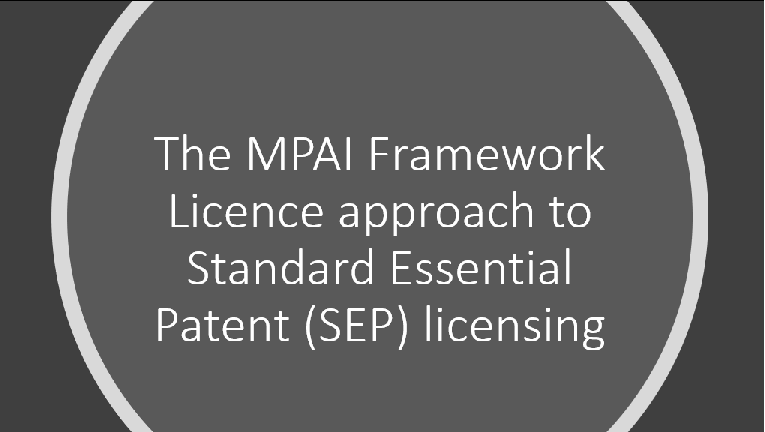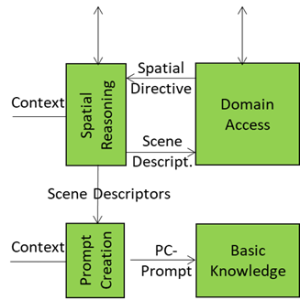In the business world, goods are delivered based on technical and commercial specifications. In the standards world, there are good reasons why the goods (the standards) of a Standards Developing Organisation (SDO) are not delivered according to commercial requirements normally accepted in the business world. However, this is not a good reason for an SDO to stay with commercial requirements called “patent declarations” that simply bind the originators to license their SEPs at so-called Fair, Reasonable and Non-Discriminatory (FRAND) terms. This simply would not make sense in business and this is the reason why FRAND has been and continues to be causing problems.
The Moving Picture, Audio and Data Coding by Artificial Intelligence (MPAI) SDO was established to develop data coding standards mostly using the Artificial Intelligence (AI) technology while offering, for each of its standards, a clear licensing framework to implementers.
This is how MPAI implements its process:
- A new standard may be proposed by anybody.
- Anybody may participate in the development of the Use Cases and Functional Requirements of a standard.
- MPAI Principal Members intending to participate in the development of a standard develop and approve, with 2/3 majority, the Framework Licence (FWL) for that standard. The FWL is a licence without values (dollars, percentages, rates, dates, etc.) containing a declaration that:
- The total cost of the licence will be in line with the total cost of the licenses for similar data coding technologies and will consider the market value of the specific standardised technology.
- The licence will be issued not after commercial implementations of the standard are made available on the market.
- During the development of the standard, MPAI members making technical contributions to the committee developing the standard declare they will make available their licences according to the FWL. Non members may participate in the development of the standard by becoming members.
- After the standard has been approved by the MPAI General Assembly:
- MPAI members who believe to be SEP holders express their preference on the patent pool administrator of the standard with a 2/3 majority.
- All Members declare they will get a licence for other members’ SEPs, if used, within one year after publication of the licensing terms by SEP holders.
The MPAI process ensures that
- The use cases and functional requirements of a standard are developed with participation of the eventual users, not just by MPAI members (i.e., the technology developers).
- Information about the eventual licence of a standard includes time (not after products are on the market) and cost (total cost of the licence in line with the total cost of the licenses for similar technologies).
Sure, this is not the same as a hard delivery date of and a price tag in dollars – standard are a special type of goods that is closely watched by antitrust authorities. But it is a long way from a promise that cost will be “fair”, “reasonable” and “non-discriminatory”, and time at heaven’s will.
You can find more information on the MPAI process and the FWL.



